
ICAS Bulletin (online ISSN 2836-3418, print ISSN 2836-340X) is published every other week throughout the year at 1919 M St NW, Suite 310, Washington, DC 20036.
The online version of ICAS Bulletin can be found at chinaus-icas.org/bulletins/.
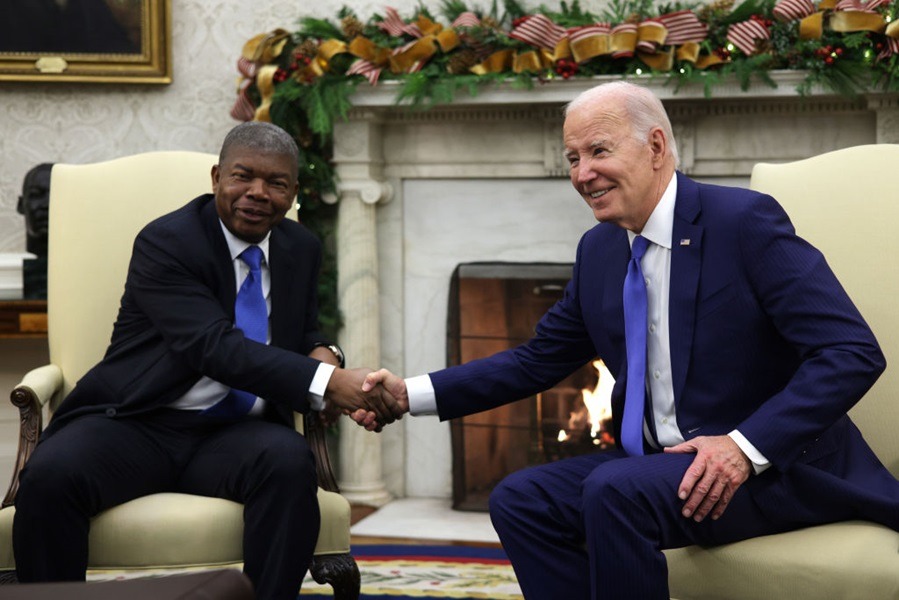
– President Joe Biden visited Angola—marking the first time a U.S. president has visited the country—to promote the U.S.-backed Lobito Corridor, a railway project announced in September 2023 aimed at countering China’s dominance in Africa and fostering economic diversification. Despite skepticism from locals more familiar with China’s visible investments, the initiative would lead to a shift toward private funding and reduced debt for Angola.
– President Biden’s $5 billion Lobito Corridor project in Angola is regarded as a core force in countering China’s influence by securing critical minerals and boosting economic growth. Some now worry over the future of U.S. commitments to such infrastructure efforts given Donald Trump’s reelection.
– Apple CEO Tim Cook and global business leaders met with China’s Premier Li Qiang to discuss trade and supply chain stability amid Trump’s tariff threats. Cook highlighted China’s importance to Apple, while Li reaffirmed Beijing’s commitment to economic growth and opposing decoupling.
– The Pentagon said that Chinese Defense Minister Dong Jun refused to meet U.S. Defense Secretary Lloyd Austin at an ASEAN summit in Laos, citing U.S. actions on Taiwan, and Trump’s re-election raises uncertainties in future U.S.-China military relations.
– As President Biden concludes his tenure, world leaders appear to be cautiously navigating diplomacy with China at the G20 Summit, aiming for global stability amid U.S.-China tensions.
Associated News References:
“U.S. Faces Stiff Test Against Chinese Dominance In Africa,” The New York Times, December 2
“Biden To Spotlight Angola’s Lobito Corridor, His Legacy To Counter China In Africa,” Voice of America, December 1
“Apple’s Cook Joins CEO Summit With Chinese Premier On Trade,” Bloomberg, November 25
“Pentagon Chief Says China Declined Meeting During Asia Visit,” Bloomberg, November 21
“World Leaders Seek Stability With China As Biden Exits The Stage,” The New York Times, November 20
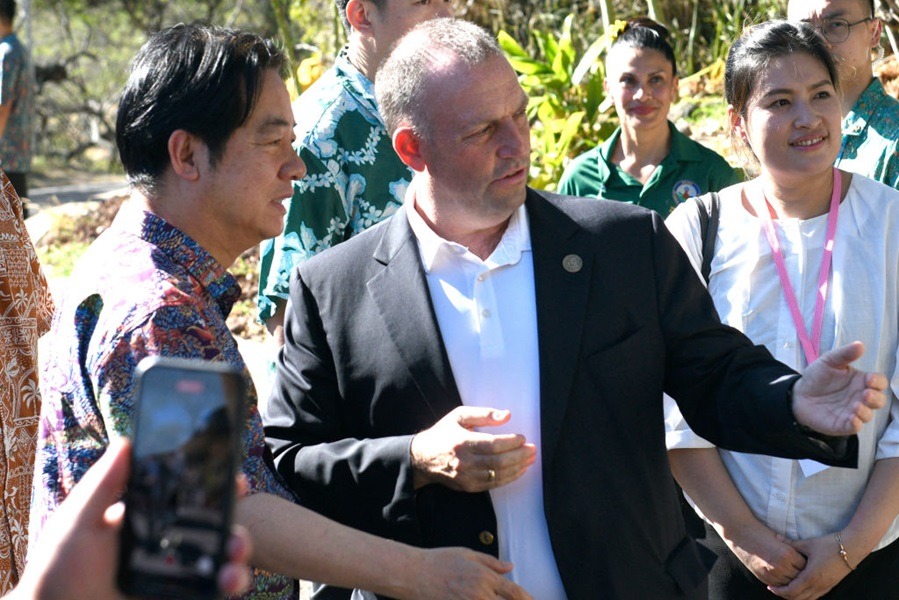
– China criticized the U.S. for approving both a $385 million arms sale to Taiwan and Taiwanese President Lai Ching-te’s visits to Hawaii and Guam, which Lai conducted as a stopover visit for three nights on the way to islands in the South Pacific. China urged the U.S. to exercise “utmost caution” regarding Taiwan after President Lai Ching-te’s visit. Beijing condemned the visit as provocative, warning of potential military drills, while reaffirming its opposition to any support for Taiwan independence.
– President-elect Donald Trump’s appointment of ‘China hawks’ and Taiwan supporters like Sen. Marco Rubio to key roles indicates to some observers continued strong ties with Taiwan in his second administration, keeping tensions in the Indo-Pacific high.
– A U.S. Navy reconnaissance plane flying over the Taiwan Strait on November 26 was tracked by Chinese naval and air forces, escalating tensions over Taiwan. While China condemned the flight as a threat to regional stability, the U.S. reaffirmed its commitment to a free and open Indo-Pacific, asserting its operations comply with international law.
– House lawmakers were briefed on potential war scenarios involving China over Taiwan, highlighting Beijing’s military advancements and the United States’ need for immediate preparedness. A think tank study involving 25 rounds of war games suggests that a U.S.-Taiwan-Japan alliance could repel an invasion, but at a high cost, underscoring the urgency of ramping up munitions and deepening regional alliances.
Associated News References:
“China Promises ‘Countermeasures’ To US Arms Sale To Taiwan,” Fox News, December 1
“China Urges Utmost Caution By US Ahead Of Taiwan President’s Hawaii Trip,” Reuters, November 29
“U.S. Navy Aircraft Shadowed By Chinese Warplanes As It Flies Over Taiwan Strait,” CBS News, November 26
“Would The US Win A War With China Over Taiwan? US Lawmakers Briefed On The Potential Outcome,” Fox News, November 21
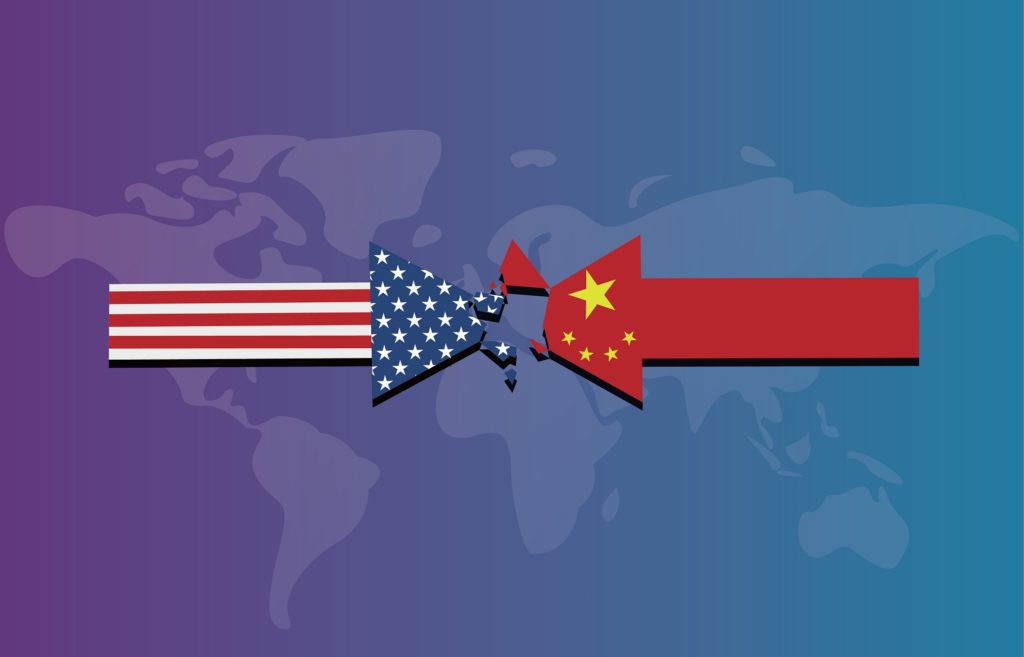
– China announced that tariff exemptions on specific U.S. imports, including rare earth metal ore, medical disinfectant, and nickel-cadmium batteries, will be extended until February 28, 2025. The exemptions are part of China’s countermeasures to the U.S. Section 301 actions, according to the Customs Tariff Commission of the State Council.
– China denounced President-elect Trump’s plan to impose tariffs up to 200% on Chinese goods over fentanyl trafficking, calling the move unproductive and against WTO rules. Analysts warn of a renewed trade war as Beijing signals possible future retaliation.
– Alcohol-maker Remy Cointreau expects steep sales declines and weaker profitability due to excess inventory and trade tensions, including U.S. tariffs and Chinese duties on EU brandy imports. Signs of U.S. market stabilization are emerging, but recovery is slow, reports say.
– President-elect Donald Trump vowed to impose a 25% tariff on all imports from Mexico and Canada and a 10% additional tariff on Chinese goods to address drug trafficking and border security. Economists warn the tariffs could spark trade wars and lead to higher consumer prices, while analysts see the moves as an opening for renegotiation of trade agreements.
Associated News References:
“China To Extend Tariff Exemptions For Some US Products To 2025,” Reuters, November 28
“China Criticises Trump Tariff Threat, Says It Won’t Solve America’s Problems,” Reuters, November 28
“Remy Cointreau Expects Sales Slump Amid Challenges In China, U.S.,” The Wall Street Journal, November 28
“Trump Vows 25% Tariffs On Mexico And Canada And Deeper Tariffs On China,” The Guardian, November 26

– On December 3, China announced bans on exports of gallium, germanium, and other key materials to the U.S., citing national security concerns and in response to U.S. semiconductor export restrictions. The move targets materials vital for chips, solar panels, and military technology.
– The U.S. imposed broad export restrictions to block China’s access to advanced AI and military technologies, blacklisting 140 entities and closing loopholes in foreign production rules. The measures aim to prevent China’s use of U.S.-linked technology for military modernization and human rights abuses.
– The U.S. announced tighter controls on high-bandwidth memory chips and chipmaking equipment, targeting Chinese companies linked to AI and military applications. Exemptions for allies like Japan and the Netherlands aim to balance security concerns with global cooperation.
– In its third ‘crackdown’ on China’s chip industry, the U.S. blacklisted major firms and tightened controls on advanced technologies. The move reportedly seeks to disrupt China’s chipmaking ambitions while ensuring allied nations adopt similar restrictions.
– The Biden administration is considering additional restrictions on semiconductor equipment and AI memory chips for China, targeting Huawei suppliers and Chinese toolmakers. The measures aim to curb China’s technology ambitions while balancing concerns from allies and American chipmakers about market disruptions.
Associated News References:
“China Bans Exports Of Key High-Tech Materials, Hitting Back At US Chip Sanctions,” ABC News, December 3
“Commerce Department Hits China With Sweeping Export Controls,” Axios Pro, December 2
“US Tightens Curbs On China’s Access To AI Memory And Chips Tools,” Bloomberg, December 2
“Latest US Strike On China’s Chips Hits Semiconductor Toolmakers,” Reuters, December 2
“US Preps China Chip Curbs That Stop Short Of Early Proposals,” Bloomberg, November 28

– The Biden administration successfully negotiated a prisoner swap with China, securing the release of Americans Mark Swidan, Kai Li, and John Leung in exchange for three Chinese nationals held in U.S. custody. The deal, a diplomatic win for Biden, follows months of negotiations and marks the release of over 70 Americans detained abroad during his presidency.
– The Biden administration added 29 Chinese companies to its Uyghur Forced Labor Prevention Act ban list, blocking imports tied to forced labor in Xinjiang. The expansion brings the total to over 100 companies targeted since the law’s 2022 enforcement, affecting goods like cotton, tomatoes, and metals.
– Donald Trump’s Commerce Secretary pick, Howard Lutnick, is facing scrutiny for financial ties to China through BGC Group and Cantor Fitzgerald. Critics question whether these connections could compromise his ability to enforce tough trade policies.
– Pro-democracy activist Jimmy Lai testified in his national security trial, denying allegations of colluding with foreign forces, including seeking U.S. sanctions on China. Lai, a former media tycoon, faces charges under Hong Kong’s national security law, which critics view as a crackdown on dissent.
Associated News References:
“US And China Swap Three Prisoners Each In Exchange,” BBC, November 28
“U.S. Adds Nearly 30 Chinese Companies To Forced-Labor Blacklist,” The Wall Street Journal, November 22
“Lutnick’s China Ties Draw Fire After Trump Taps Him To Lead US In Trade War,” Reuters, November 21
“Pro-Democracy Tycoon Jimmy Lai Denies Asking U.S. To Act Against Hong Kong, China In Landmark Trial,” NBC News, November 20
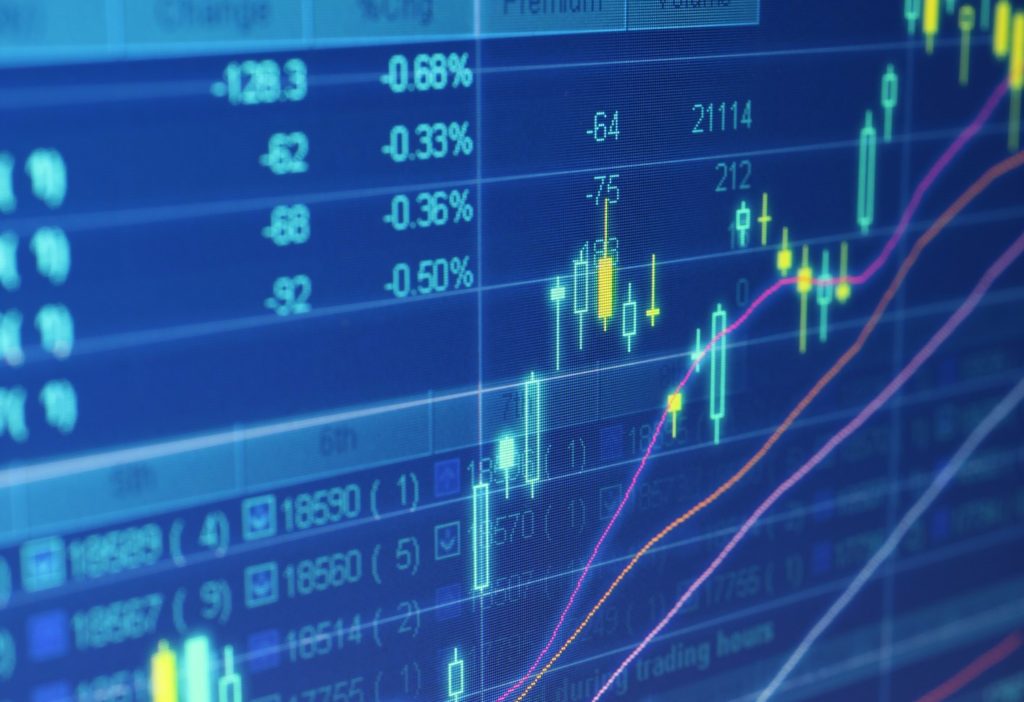
“Inside A Secret Plan To Bring Uyghurs Trapped In China To The United States,” The New York Times, December 3
“Chinese Lidar Sensors Pose Hacking Risk To US Defense Equipment, Report Says,” Reuters, December 2
“Chinese Exporters Front-Load Shipments In Bid To Dodge Trump Tariffs,” Financial Times, December 2
“The Whiz Kid Who Made Billions for Yale Is Rethinking His China Strategy,” The Wall Street Journal, November 29
“Texas Governor Orders State Agencies To Sell China Assets,” Reuters, November 22
“China’s Pony AI Seeks Up To $4.55 Bln Valuation In Upsized US IPO,” Reuters, November 20
ICAS 2024 Annual Conference Trump 2.0: Will U.S.-China Relations Prosper, Suffer or Muddle Through?
ICAS is excited to hold its 2024 Annual Conference in-person at the Georgetown Marriott Hotel in Washington, D.C. next Thursday, December 12, 2024!
Online registration is now available for those unable to attend in-person!
Featuring a keynote by Minister Qiu Wenxing (Embassy of the People’s Republic of China in the United States), a luncheon speech by Stephen Orlins (National Committee on U.S.-China Relations), and four expert panels, this year’s conference will assess the upcoming challenges and opportunities in U.S.-China relations amidst Donald Trump’s return to the Oval Office. A buffet lunch will be provided to registered guests.

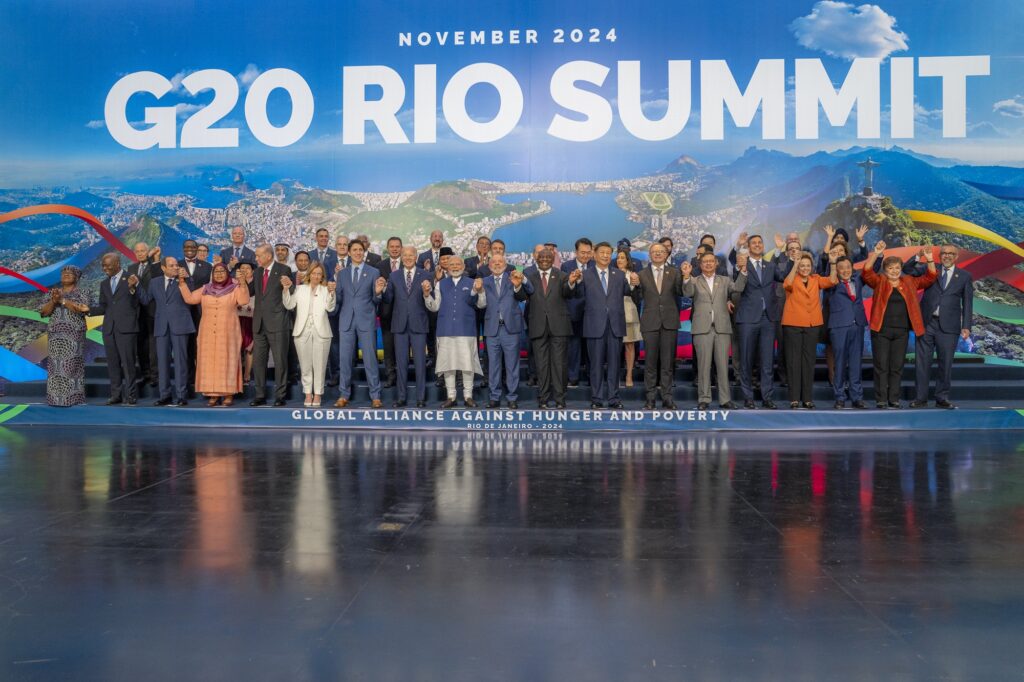
China’s Role in the G20 and Beyond
By Sourabh Gupta
November 20, 2024
The following interview was originally conducted and released by Global Times on November 20, 2024.
Global Times (GT) Editor’s Note:
The leaders of the G20 met in Rio de Janeiro on Monday and Tuesday to address major global challenges and crises and promote strong, sustainable, balanced and inclusive growth. Why is the G20 embracing a “Global South moment”? In light of the current challenges facing globalization, what role is China playing within the G20? Global Times (GT) reporter Qian Jiayin interviewed Sourabh Gupta (Gupta), a senior fellow at the Washington-based Institute for China-America Studies, to discuss these issues.
How the West can navigate Sino-Russian cooperation in the Arctic
By Nong Hong
November 26, 2024
The China-Russia partnership has reached unprecedented levels, propelled by mutual strategic interests in Arctic governance and a shared objective of countering Western influence. This partnership is reflected in recent joint military activities, enhanced maritime cooperation and increasingly integrated Arctic policies.
Two high-profile military exercises – “Northern/Interaction-2024” and “Ocean-2024” – highlight the depth of China-Russian military cooperation. The Northern/Interaction-2024 exercise emphasised anti-submarine warfare and aerial defence. The drills tested advanced interoperability between the two nations’ naval forces, underscoring their preparedness for joint operations in sensitive regions…
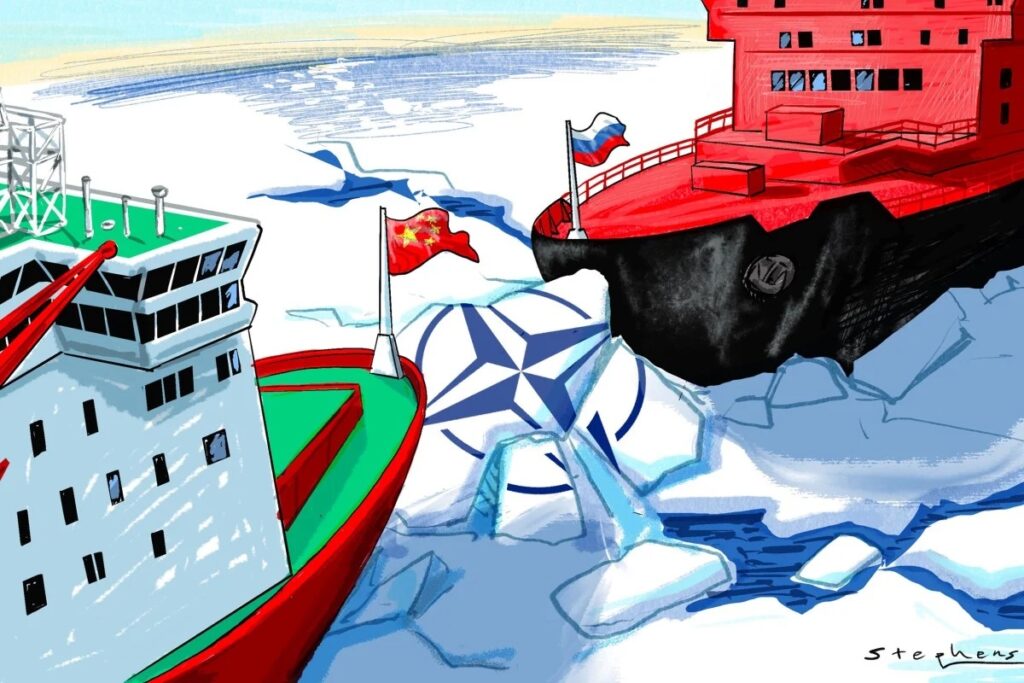
On Thursday, November 19, 2024, Senior Fellow Sourabh Gupta was interviewed by CGTN America’s The Heat on the Rio G20 Summit priorities.
On Thursday, November 19, 2024, Senior Fellow Sourabh Gupta was interviewed by South China Morning Post on the recently concluded G20 Leaders Summit in Rio.
On Friday, November 20, 2024, Senior Fellow Sourabh Gupta was interviewed by South China Morning Post on the recently concluded G20 Leaders Summit in Rio.
On Friday, November 20, 2024, Senior Fellow Sourabh Gupta was interviewed by Global Times on China’s role with the G20.
On Friday, November 27, 2024, Senior Fellow Sourabh Gupta was interviewed by South China Morning Post on the release of ‘wrongfully detained’ Americans from China.
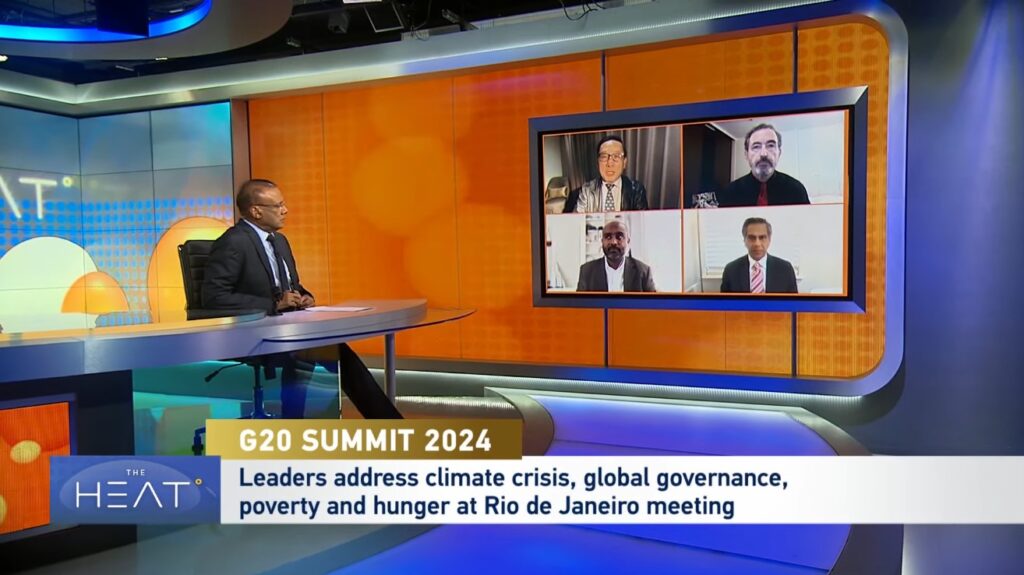

The Institute for China-America Studies is an independent nonprofit, nonpartisan research organization dedicated to strengthening the understanding of U.S.-China relations through expert analysis and practical policy solutions.
1919 M St. NW Suite 310,
Washington, DC 20036
icas@chinaus-icas.org
(202) 968-0595
© 2025 INSTITUTE FOR CHINA-AMERICA STUDIES. ALL RIGHTS RESERVED.